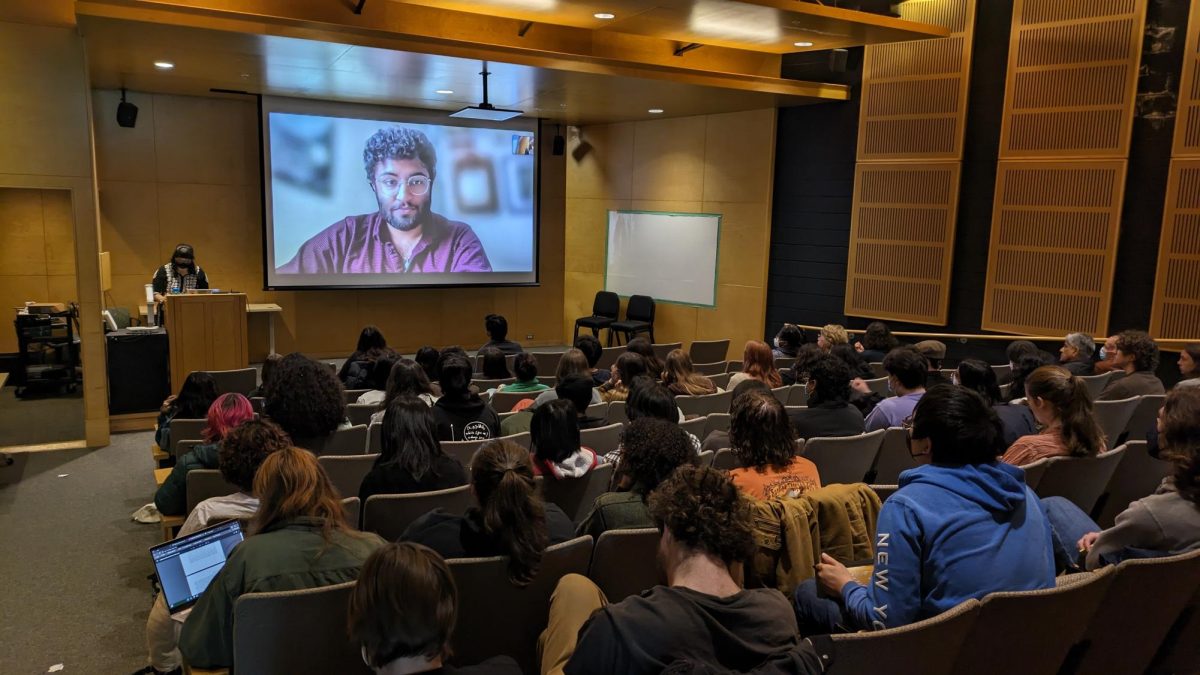National Political Climate Inspires Push for Legal Aid
February 10, 2017
Student senators are campaigning for the College to provide free legal aid to students who need it by fall 2017.
The push by Senate began in fall 2015 but has recently gained increased urgency with the Gibson’s Bakery arrests and Trump’s immigration plans highlighting the need for litigation services on campus.
“How can you expect to be a full-time student and have a healthy mental health, academic performance, etc., while trying to come up with thousands of dollars to retain an attorney?” said Josh Koller, College junior, Student Senator and Legal Aid working group co-chair.
The Legal Aid working group, originally founded in fall 2015 by Koller and former Student Senate Liaison Megs Bautista, OC ’16, sent out a survey to students last spring asking for student input on potentially creating legal services for students on campus, following up with a forum in April 2016 to share the results.
According to the survey, a significant majority of students hadn’t gone through an experience when they would have made use of the service. However, they would overwhelmingly accept the service if the option was available. Of those who said they had gone through some type of litigation experience during their time at Oberlin, all responded that it impacted their educational, social or emotional well being in a negative way.
Over the next few months, the working group hopes to identify an attorney that the College might be able to keep on retainer starting this fall. The attorney would ideally be able to represent students charged with misdemeanors, felonies or violations of immigration law.
Like most programs on campus, the main obstacle at this point is funding.
Any funding for the project will likely come from private grants and organizations or directly through student funds. Dean of Students Meredith Raimondo noted that while the College will not and cannot provide legal services for students, it is still able to provide legal referrals in a less official capacity.
“The College is not able to provide legal advice to individuals or fund individual legal assistance,” Raimondo wrote in an email to the Review. “However, students seeking information about potential legal resources are encouraged to contact the Dean of Students office, where staff are happy to help find information about referrals and resources.”
Although the lack of College funding is frustrating to some students, Koller said it’s possible that students could be allocated more money if it comes out of student activity funds.
“This is an interesting case where it might actually be better to not have this come out of the College’s pocket,” Koller said. “There could potentially be more constraints if we use College money on this, so using student money — even if it’s Student Activity Fund money — could allow us a little more leeway and allow us the opportunity to represent more students.”
For Student Senators and working group members, finding funding for legal aid means a semester filled with grant writing and bargaining with various funding groups on campus.
“Our first step was grant writing — looking to private individuals to see if they could fund this,” Koller said. “And then our secondary ideas are to ask for money from the Student Activity Fund and then to actually ask students.”
The working group estimates that it would cost about $30,000 per year to keep an attorney on retainer and provide them with an office on campus. The group would ideally like an attorney from the greater Cleveland area to be on campus once a week for six hours to provide in-person legal services to students. This could also potentially provide work for students interested in assisting in litigation.
If the group is unable to secure any grants or private contributions, they plan to look to the student activity fund. The $30,000 estimate would be about 2.5 percent of the fund’s total budget. Working group members estimate that this process could begin as early as March or April.
If all else fails, Student Senate may ask students to approve a $5 tuition hike per semester.














